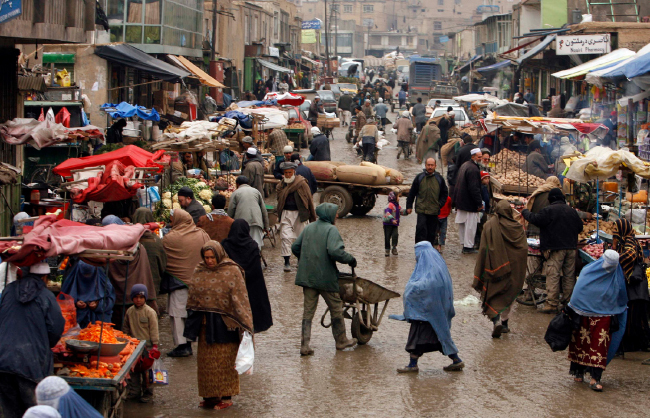There is a wide gap between the ideal world of Afghanistan’s Constitution and realistic life of Afghan nation. The rights and liberty of people are considered natural, inalienable and inviolable constitutionally. The state is committed to observe the United Nations Charter and the Universal Declaration of Human Rights (UDHR) and form a civil society void of violence and bloodshed. Distinction and discrimination on the grounds of race, color, creed and gender have no room in the law. Upholding human rights, empowering women and strengthening democracy are stated explicitly. Freedom, including freedom of speech and thought, and human dignity are “inviolable”.
In the criminal sphere, persecution is forbidden as it is stated in article 29, “No one shall be allowed to or order torture, even for discovering the truth from another individual who is under investigation, arrest, detention or has been convicted to be punished. Punishment contrary to human dignity shall be prohibited.” Similarly, soliciting confession or testimony under pressure is not valid. In brief, the criminal code is also based on democracy and in accordance with international instruments.
Since the UDHR is recognized by the state, all human beings are born free with natural rights and should be able to exercise their fundamental rights – i.e. the rights to life, liberty and property – without fear and barriers. “No one shall be subjected to torture or to cruel, inhuman or degrading treatment or punishment,” as it is said in article 5 of the UDHR. No one should be discriminated and “all are entitled to equal protection against any discrimination”. The equality of human beings in rights and dignity are stressed both in Afghan Constitution and UDHR and the state is supposed to respect and protect them.
The aforementioned facts are highly ambitious. In the real life of Afghan people, human rights and dignity are violated in one way or another. For instance, the administrative corruption in government’s apparatus has been a strong obstacle before implementing law. People are oppressed and humiliated with impunity. Some corrupt officials do not value the rights of individuals and discriminate them on the basis of their money. The rule of law is marginalized and reduced to written document rather than being practiced in real life. Those who claim to implement the law, such as police officers and some authorities, are the main law-breakers. You can simply take the parliament, for example. The legal period of parliament, which is the legislative power in a government, was terminated two years ago and the state had to conduct election, but it is still being run without legal basis. Do you not think that it is a violation of law by the state? What about the legal basis of forming National Unity Government (NUG)? If the election was transparent and without rigging, there was no need for forming such a government.
To view the issue from the next perspective, the rights and dignity of men and women are trampled upon by warring parties. For example, the Taliban conduct a desert court to punish women without referring to Afghanistan’s law. Women are humiliated and tortured in desert courts in the worst possible way.
Worst of all, people are killed on a massive scale and their freedoms are curtailed by militant fighters. Reports are replete with human fatalities and tragic stories happening to the nation. The “inviolable” rights and liberty are violated and nation suffers from militancy. Hence, a “civil society” where people were promised to exercise their rights freely and taste the sweet fruit of democracy remains no more than a dream.
The events taking place in the real life of Afghans are a slap in the face of democracy and Constitution. The democratic discourse debated hotly following the collapse of the Taliban regime and establishment of a government based on public election, went no more beyond words. With the escalation of militancy in recent years, democracy is likely to be moribund and the hope for a civil society has been shattered. Do you think that people should hope for better when policemen turn to law-breakers and judges turn to criminals?
The gap between the ideal ambitions of law and real life of nation is extremely wide. Approving a democratic constitution and conducting election do not reflect democracy. The country must implement this law and conduct a transparent election in accordance with the law. The state will have to bridge this gap between ideal and real life through enforcing law and protecting the rights and liberty of citizens. Turning a blind eye to the society’s realities will deteriorate the situation and put the abilities of the state under serious question.
Home » Opinion » The Gap between Afghan’s Real and Ideal Life
The Gap between Afghan’s Real and Ideal Life
| Hujjatullah Zia

